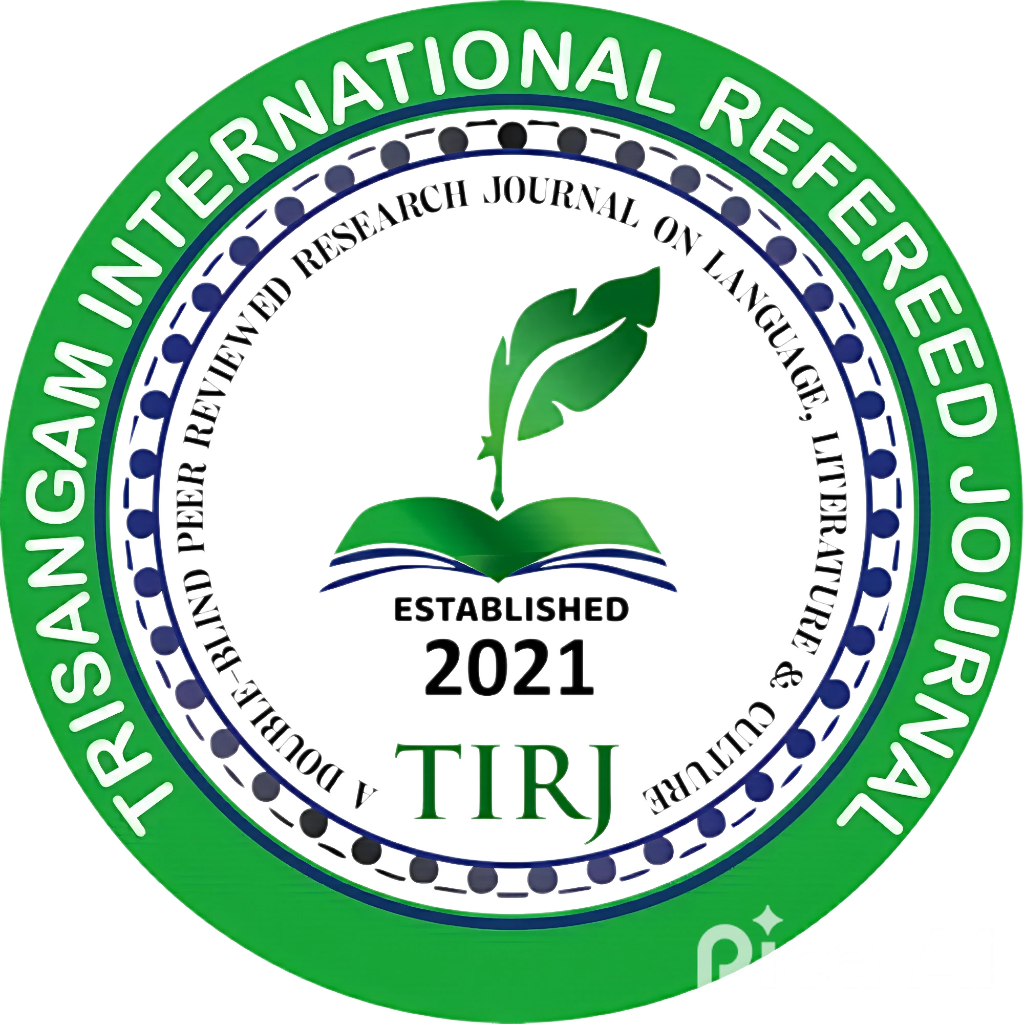THE THOUGHTS OF RABINDRANATH TAGORE AND THE UPANISHADS ON BRAHMANISM: A COMPARATIVE ANALYSIS/ ব্রহ্মবাদ প্রসঙ্গে উপনিষদ ও রবীন্দ্রনাথের ধারণা : একটি তুলনামূলক পর্যালোচনা
Keywords:
- Rabindranath,
- Brahmanism,
- Upanishad,
- Jivan Devata,
- Monism,
- Dualism,
- Reality,
- Brahman,
- Vedas
Abstract
Rabindranath Tagore was familiar with the Upanishads from his childhood. The main theme of the Upanishads is Brahman. We find the concept of Brahmanism (Brahmabāda) in Rabindranath's thought which was influenced by the Upanishads. Sometimes Rabindranath explained Brahman as in the Upanishads and sometimes he also presented the concept of Brahman in a new way with his own thoughts. Like the Upanishads, Rabindranath searched for a hidden entity in Nature. Through a deep love relationship he found that the entity in his ownself is called ‘Jivan Devata’. According to Tagore, the universal entity can be manifested in two stages: firsty the entity is the all-pervasive hidden governing power, the manifestation of the actions of it. Secondly, it is revealed through the love relationship with the individual, like the Jivan Devata of the souls. The Manifestation of the work of universal entity means to act for others by being humane towards the universe. From these Rabindranath developed the theory of Humanism. There is a difference between the thoughts of Rabindranath and the Upanishads on the Jivan Devata. We find the concept of Jivan devata in the thoughts of Rabindranath, where we cannot find that in the Upanishads. Rabindranath pays more importance to the path of devotion (bhakti Marg), where the Upanishads pays the path of knowledge (gyan Marg). We will also find more importance of dualism than monism in Rabindra Darshan. In this context Dualism he gave much importance to the mind in composing the external world. Like the Upanishads, Rabindranath believed that Nirguna Brahma created the world in order to get pleasure. In this way, we will try to present that Rabindranath's Brahmanism is not completely like that of the Upanishads and also not like the theories of Vedantic philosophers. In short, in our opinion we can assume Rabindranath's concept of Brahman as a distinct Brahmanism.
Downloads
References
১. বন্দ্যোপাধ্যায়, হিরন্ময়, উপনিষদ ও রবীন্দ্রনাথ. কলকাতা: নবপত্র প্রকাশনা, 1959. পৃ. ৪৪ - ৪৫
২. ঠাকুর, রবীন্দ্রনাথ, আত্মপরিচয়. কলিকাতা: বিশ্বভারতী গ্রন্থালয়, ১৩৫২. পৃ. ৮৬
৩. ঠাকুর, রবীন্দ্রনাথ, দি রিলিজিয়ন অফ ম্যান. বাংলা অনুবাদ, সেনগুপ্ত শংকর, কলকাতা: প্রগ্রেসিভ পাবলিশার্স, ২০১৪. পৃ. ১০১
৪. ঠাকুর, রবীন্দ্রনাথ, ‘ব্রহ্মসমাজের স্বার্থকতা’, শান্তিনিকেতনে. দ্বিতীয় খন্ড. কলিকাতা: বিশ্বভারতী গ্রন্থবিভাগ, ১৯৭৫, পৃ. ১৪১
৫. লেকেশ্বরানন্দ, স্বামী, উপনিষদ : ছান্দোগ্য উপনিষদের শংকর ভাষ্য অনুযায়ী ব্যাখ্যা. দ্বিতীয় ভাগ, শ্লোক সংখ্যা ৩/১৪১, কলকাতা, আনন্দ পাবলিশার্স, ২০১২, পৃ. ১৩৫
৬. তদেব, শ্লোক সংখ্যা ৬/১/৪, পৃ. ২৪৯
৭. বন্দ্যোপাধ্যায়, হিরন্ময়, 1959, প্রাগুক্ত, পৃ. ৬৮
৮. গম্ভীরানন্দ, স্বামী, ‘ঐতরেয়োপনিষদ’, উপনিষদ গ্রন্থাবলী. শ্লোক সংখ্যা, ২।। ১, কলকাতা, উদ্বোধন কার্যালয়, ১৯৬২, পৃ. ৩৫১
৯. লেকেশ্বরানন্দ, স্বামী, ২০১২. প্রাগুক্ত, শ্লোক সংখ্যা ৬/২/৩, পৃ. ২৫২
১০. বন্দ্যোপাধ্যায়, হিরন্ময়, 1959, প্রাগুক্ত, পৃ. ১০২
১১. গম্ভীরানন্দ, স্বামী, ‘তৈত্তিরীয় উপনিষদ’, ১৯৬২, প্রাগুক্ত, শ্লোক সংখ্যা, ৩/১০/৪, পৃ. ৩৫২
১২. ঠাকুর, রবীন্দ্রনাথ, দি রিলিজিয়ন অফ ম্যান, ২০১৪, প্রাগুক্ত, পৃ. ৮৫
১৩. তদেব, পৃঃ, ৮৫
১৪. ঠাকুর, রবীন্দ্রনাথ, ‘গীতিমাল্য’, ৫, কলকাতা, বিশ্বভারতী গ্রন্থালয়, ১৯৪৬, পৃ. ৮
১৫. ঠাকুর, রবীন্দ্রনাথ, ‘ব্রহ্মসমাজের স্বার্থকতা’, শান্তিনিকেতনে, ১৯৭৫, প্রাগুক্ত, পৃ. ১৪০
১৬. তদেব, পৃ. ১৪০
১৭. ঠাকুর, রবীন্দ্রনাথ, গীতিমাল্য, ১৯৪৬, প্রাগুক্ত, গীত সংখ্যা, ১০৩, পৃ. ১২৪
১৮. ঠাকুর, রবীন্দ্রনাথ, ‘কর্মযোগ’, শান্তিনিকেতন, ১৯৭৫, প্রাগুক্ত, পৃ. ১০৯
১৯. ঠাকুর, রবীন্দ্রনাথ, শিক্ষার মিলন, কলকাতা, ১৩২৮, পৃ. ২২ https://archive.org/details/dli.ministry.26894
২০. তদেব, পৃ. ৫
২১. ঠাকুর, রবীন্দ্রনাথ, ‘ব্রহ্মসমাজের স্বার্থকতা’, প্রাগুক্ত, পৃ. ১৪০ - ১৪১
২২. তদেব, পৃ. ১৪১
২৩. ঠাকুর, রবীন্দ্রনাথ, উপনিষদ ব্রহ্ম. কলকাতা, আদি ব্রহ্মসমাহ যন্ত্রে, ১৩৮০, পৃ. ১৮ https://upload.wikimedia.org
২৪. ঠাকুর, রবীন্দ্রনাথ. ‘প্রেম’, শান্তিনিকেতন. প্রথম খন্ড, কলকাতা: বিশ্বভারতী গ্রন্থালয়, পৃ. ২৬
২৫. তদেব, ‘নমস্তেহস্তু’, পৃ. ৩১৫
২৬. ঠাকুর, রবীন্দ্রনাথ, ‘নদী ও কূল’, শান্তিনিকেতন. প্রথম খন্ড, প্রাগুক্ত, পৃ. ২৬০






